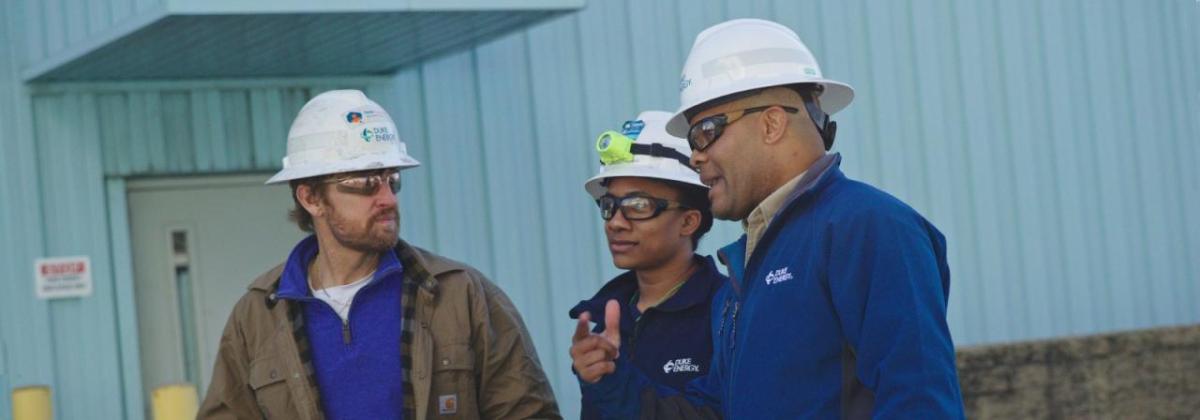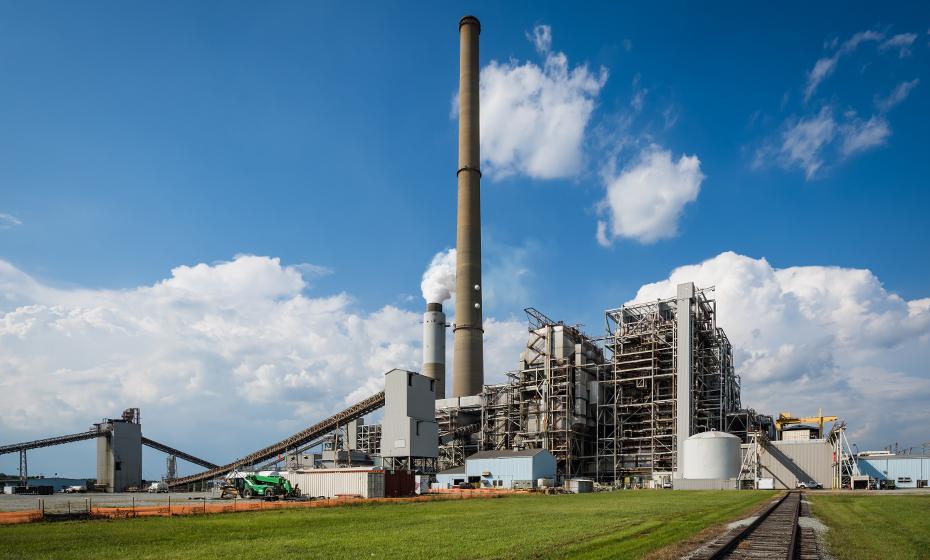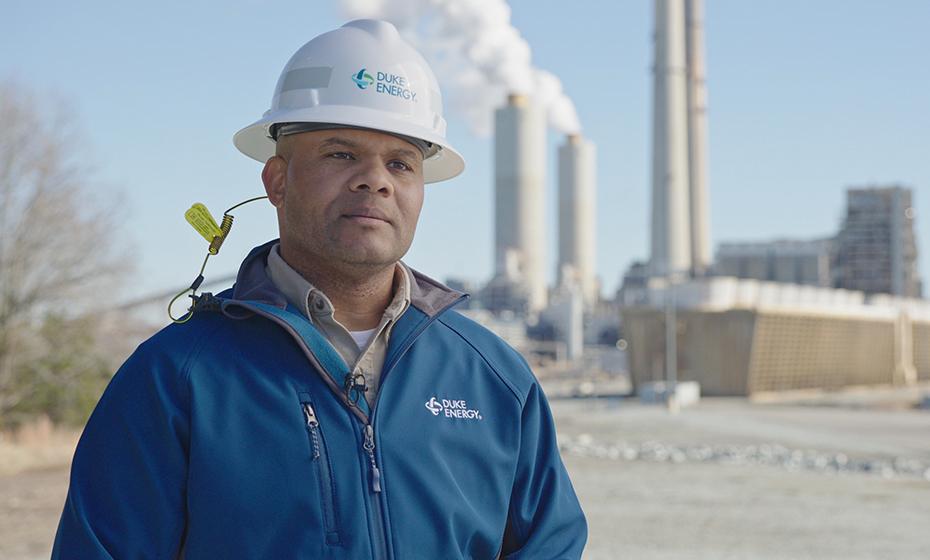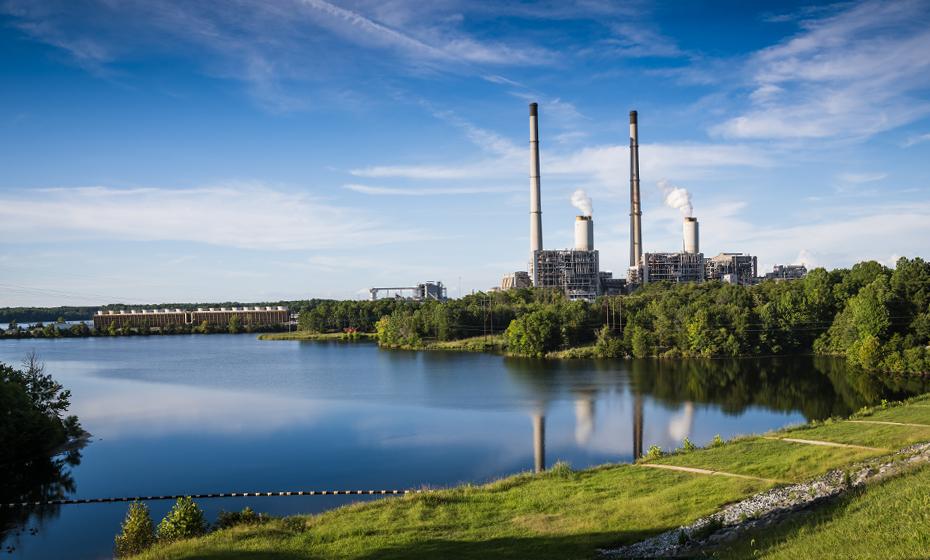Advancing the Future of Energy With Person County, NC
Replacing coal plants with natural gas would continue tradition of reliable power while supporting local workforce
Published 04-12-24
Submitted by Duke Energy

By Gina DiPietro | illumination Staff Writer
When Derrick Smith was in elementary school, his uncle traveled to power plants across North Carolina to repair and maintain equipment that delivered power to millions of people as part of his job at Carolina Power & Light (now part of Duke Energy). Even as a child, Smith understood how important that job was.
It inspired him to become a chemistry technician at Duke Energy’s Roxboro (Hyco) Plant in Semora, N.C., a little north of where Smith grew up in Person County.
“It means something to be able to power the homes and lives of people in this area and across the state,” he said. “That gives me something to look forward to each and every day.”

It’s a sentiment shared by Jack Long Jr., a mechanic at Duke Energy’s Mayo Plant, also in Person County.
“People rely on us to keep the lights on,” Long said. “Plus, it’s right here, 10 miles from my house. I don’t want to travel far to come to work. And it’s good paying jobs, you know.”
In the future, their mission to provide reliable power will be the same – how it is done, though, will be different.
Roxboro has used coal to generate electricity since 1966; Mayo has been in operation since 1983. And like most U.S. coal plants, the facilities are reaching the end of their operational lives. They’ll be replaced by a mix of cleaner energy sources – renewables, batteries, advanced nuclear and natural gas – as the company works toward net-zero carbon emissions.

To keep jobs and investment in an area that depends on it, Duke Energy has proposed two new hydrogen-capable natural gas units at the Roxboro site, which would become the Person County Energy Complex. These investments would support the state and region’s growth while prioritizing the local workforce – employees like Smith who want to continue a family tradition of powering the community.
“We’re blessed to have the jobs and opportunities that we’ve got, because we can live and grow our families here,” Smith said. “To see that go away would really change the dynamic of this community.”
As one of the county’s largest employers, Duke Energy is responsible for 20% of its tax base, an economic impact of about $7 million annually.
“When you look at the numbers, it's very easy to see the magnitude of Duke Energy’s impact,” said Person County Commissioner Gordon Powell. “I certainly want to see Person County be a focal point of new technology and advances being made in power generation. We would love to have Person County be an energy hub for North Carolina.”

New natural gas generation in North Carolina would benefit customers in South Carolina, too. Both regions are experiencing tremendous growth, and with that comes a need for more electricity.
Contributing to increased energy demand is population growth, increasing adoption of electric vehicles and, most of all, major new investments from manufacturing and technology companies. While Duke Energy’s plans call for thousands of megawatts of renewables and energy storage, advanced nuclear and other emerging technologies aren’t available yet. To meet growth in the interim while retiring coal, the company needs a reliable resource like natural gas.
“I love coal,” Long said, “but we’re already seeing the shift away from coal. Years ago, when we needed parts, it was on the next flight or the next truck here. Now, you know, it can be six weeks or six months. So, we’re seeing that it’s harder to get supplies. And it’s going to get more expensive in the future for us to run these plants.”

Natural gas is available 24/7 – with fewer emissions than coal and at a lower cost than renewables alone. Solar and wind generation fluctuate based on the weather, but natural gas is available around the clock to fill in the gaps. The new units would be designed to operate on carbon-free hydrogen in the future.
“[Roxboro] plays a huge role in meeting the energy needs of our state,” Smith said, “but as we’ve upgraded and modernized these plants over the years, it also meant we got to bring in additional contract resources who – like the employees – are coming into this community to shop locally, spend their money by going out to restaurants, staying in hotels. … And again, that’s just additional revenue to benefit the business owners in this community.”
Duke Energy serves millions of utility customers by safely generating and delivering the electricity needed to keep their lives and businesses running. And in addition to the jobs and tax benefits that brings to its power plant communities, the company invests in the area’s most worthy causes.

“Because of Duke Energy’s commitment to the community, Person County has seen more than $600,000 in local giving to nonprofit organizations in recent years,” said Duke Energy Foundation Manager Louis Duke. “Duke Energy Foundation grants, employee donations and local sponsorships have been tremendously beneficial to the community’s charitable causes.”
“Our team members give back to this community in a big way,” said Beth Townsend of Duke Energy, the region’s government and community relations manager. While she’s somewhat new to the role (just shy of a year), Townsend has lived in Person County for nearly 20 years.
“Through fundraisers, golf tournaments and company-matched donations, our employees give thousands [of dollars] to help fulfill the needs of local nonprofits and other organizations that support the people who live and work here,” Townsend said. “It’s heartwarming to see, but also to be able to raise a family in this kind of environment.”

If approved by regulators, the new Person County units would be operational in 2028 and 2030. The company also plans to build hydrogen-capable natural gas units at its Marshall Steam Station site in Catawba County, N.C., as well as at another site in South Carolina.
Power plants have been part of Person County’s history for so long that Smith said it’s hard to imagine the community without it. Knowing that a replacement could be on the way is exciting, he said, and will allow the current workforce to take on a new challenge.
“In new challenges, there is going to be great opportunity. We’ve already got a lot of skilled labor at this site. They can easily jump into operations at a new site on day one and not miss a beat,” Smith said. “So, I think our future is very bright.”
View original content here.

Duke Energy
Duke Energy
Duke Energy (NYSE: DUK), a Fortune 150 company headquartered in Charlotte, N.C., is one of America’s largest energy holding companies. The company’s electric utilities serve 8.4 million customers in North Carolina, South Carolina, Florida, Indiana, Ohio and Kentucky, and collectively own 54,800 megawatts of energy capacity. Its natural gas utilities serve 1.7 million customers in North Carolina, South Carolina, Tennessee, Ohio and Kentucky.
Duke Energy is executing an ambitious energy transition, keeping customer reliability and value at the forefront as it builds a smarter energy future. The company is investing in major electric grid upgrades and cleaner generation, including natural gas, nuclear, renewables and energy storage.
More information is available at duke-energy.com and the Duke Energy News Center. Follow Duke Energy on X, LinkedIn, Instagram and Facebook, and visit illumination for stories about the people and innovations powering our energy transition.
More from Duke Energy

